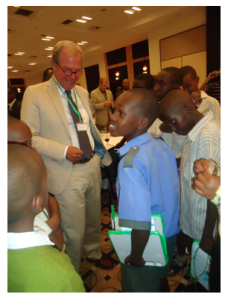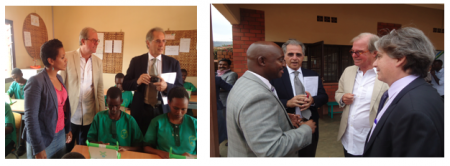The Cabinet in Fiji has approved the Ministry of Education’s ‘One Laptop per Child’ program, scheduled to begin in October according to the Fiji government online portal.
The Cabinet agreed that funding will be provided to facilitate two phases of the project. The Cabinet based its decision on a submission by the Minister for Education, National Heritage, Culture and Arts, Mr Filipe Bole.
The Pacific Island Countries Ministers of Education agreed to implement the OLPC project in 2007. In 2008, pilot programs began in Nauru, Niue, Solomon Islands, PNG and Vanuatu. The project aims to bridge the digital divide at the Primary School level as it involves children aged 6 – 8 years old.
The Minister announced that 800 laptops will be donated by the Bank of South Pacific (BSP).  The first phase of the project will be in Papua New Guinea, with three demonstration schools in the Suva area. These schools are Draiba Primary School, Nabua Sanatan Primary School and the Navesi Primary School. The schools will begin the project in October of this year.
The Minister for Education, Filipe Bole, said the program will expand to 30 schools in 2013.
“By the end of next year, we hope to have all primary schools participating in the One Laptop Per Child program. After that we will move to secondary schools,†Mr Bole said.
“This is part of Government’s efforts to reform education for all students. The Government wants to keep students at school so that they can complete their education.â€
The Minister said that the project intends to promote a cultural and educational network, bringing officials from the culture, education, media and information and communication technology (ICT) sectors together to foster the inclusion of culture in education.
He said that the project compliments and enhances other ICT in Education initiatives and will help develop 21st century computer and IT skills in Fijian students. This will greatly contribute to making Fiji a Knowledge-based Society.







